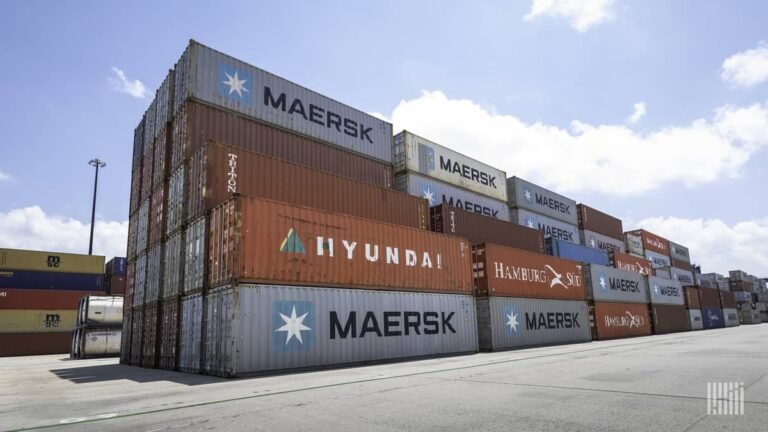U.S. agricultural and forestry product exporters are counting the roads and dollars it costs them when ocean carriers, without warning, change the arrival times of containers at marine terminals.
The Washington-based Agricultural Transportation Coalition (AgTC) and supply chain technology company TradeLanes recently reached out to hundreds of U.S. shippers to survey the operational and financial impacts of early return date (ERD) fluctuations on their businesses.
AgTC and TradeLanes analyzed and processed data collected from 283 survey participants, which they said identifies the problem with irregular ERDs from ocean container carriers.
“The costs and disruption caused by inaccurate and variable early return dates for containers are eroding margins,” AgTC CEO Peter Friedman said in a statement. “Restoring ERD integrity is a top priority for our industry.”
Some highlights of the 25-question survey include:
More than 75% of respondents said their carrier bookings often lacked an ERD. Most participants reported that a quarter of their containerized shipments experienced ERD changes, with 35% of participants reporting ERD changes for more than half of their shipments. Seventy-eight percent of participants indicated that at least 5% of shipments affected by ERD changes incurred additional costs that reduced of their profitability, with 8% noting that 50% or more of their containerized shipments experienced additional ERD-related costs. Seven percent reported ERD-related downtime costs of $1,000. or more per shipment.
AgTC has monitored this issue among its shipper members in recent years and wants carriers to correct the problem.
The inability of ocean carriers to keep shippers immediately informed of changes in sailing schedules and ERDs for containers results in late fees and additional costs for trucking, storage, rolled cargo and missed sailings, Friedman said.
Since ocean carriers have contractual relationships with shippers, either through service contracts or bills of lading at the individual shipment level, the AgTC said they are obligated to communicate directly and promptly with those customers and not rely on marine terminals and other parties to let exporters know about ERD changes.
In many cases, once a container enters the intermodal flow, shippers have little recourse to stop the container en route to a sea terminal when they detect changes in the ERD. Shippers and their truck drivers are left struggling to find storage space and parking until containers are allowed into marine terminals to load onto ships.
While AgTC and TradeLanes believe a technology solution can be developed for ocean carriers to communicate ERD changes to shippers instantly and uniformly, it will take an industry-wide push to make this happen.
All parties in the supply chain will need to work together to develop a “fair and effective standard of practice,” TradeLanes chief of staff Reece Giangola told American Shipper.
Related news
US exporters want an end to irregular container return times
American shippers, carriers want hull ocean carriers
Empty sailing threatens to sink Heartland’s exports
Click for more FreightWaves/American Shipper articles by Chris Gillis.





